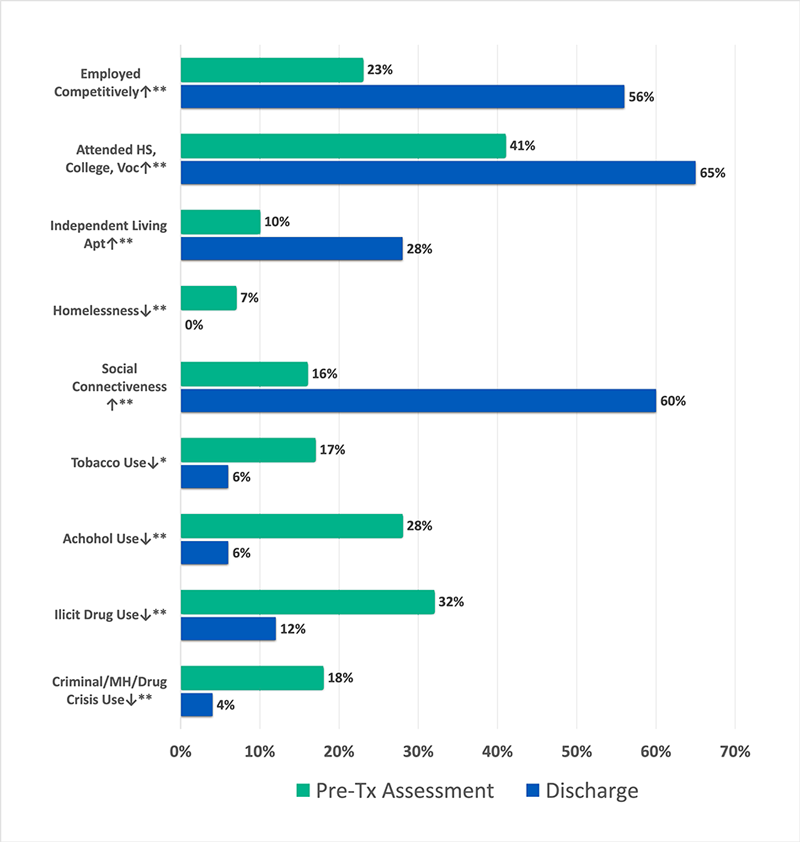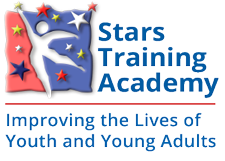We are thrilled to announce that a recent TIP Model Outcome Study has been published in the Journal of Evidence-Based Social Work!
This research was conducted in a large, ethnically-diverse metropolitan area with 17 behavioral health agencies in Broward County, FL. Over the past 6 years, Clinical Training Specialist, Adele Aparicio, has collaborated with Tiffany Lawrence, Program Director at Broward Behavioral Health Coalition, on TIP Model implementation and sustainability across six of these agencies that have fully adopted the TIP Model. TIP Model Developer, Rusty Clark, collaborated with evaluator, Rhonda Bohs, who lead this research effort to examine the outcomes of youth and young adults served during this time.
The youth showed improvements in several areas: daily-life functioning, employment, education, substance use, and involvement of hospitalization/crisis services related to mental health, drug use, and/or criminal justice. The study further demonstrated that the TIP Model had significantly better outcomes than the typical case management group.
The infographic below shows the percentage of young persons' improvement from their pre-treatment assessment (green bar) to their discharge assessment (blue bar).

Two studies were conducted to evaluate the progress and outcomes of youth and young adults with serious mental health conditions being served by six agencies using the Transition to Independence Process (TIP) Model. The first study presents pre/post outcomes for the young people being served and examines some differential outcomes of gender, race, and diagnoses; and the second study involved a comparison between the TIP Model group and a typical case management group. The young people being served in the TIP Model showed improvements in areas of: daily-life functioning, employment, education, substance use, and involvement of hospitalization/crisis services related to mental health, drug use, and/or criminal justice. The comparison study demonstrated that the TIP Model group had better outcomes than the case management group. These improved outcomes were accomplished under a large county collaborative that had implemented the TIP Model and related supportive infrastructure. Implications of the finding and future research are discussed.
The TIP Model is consistent in its success at improving the lives of young people, locally, and nationally, using a research-supported, evidence-based treatment. Click here to learn more about the TIP Model.
To Cite or Learn more about this Research Article: Rhonda Bohs, Tiffany Lawrence & Hewitt B. Rusty Clark (2021). Evaluation of Outcomes of Youth and Young Adults Being Served under the Transition to Independence Process (TIP) Model by a Six Agency Collaborative, Journal of Evidence-Based Social Work, DOI: 10.1080/26408066.2021.1948482



